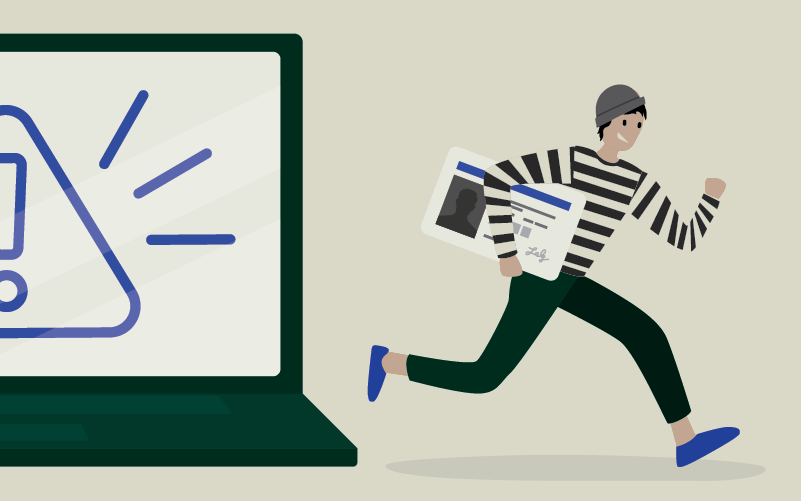
Fraud Education
About

Identity Theft
One day, as you’re checking your online or paper bank statement, a charge might catch your eye. If you don’t remember making the purchase or it’s from a place you’re not (nor have ever been) something is amiss. The most likely the culprit? Identity theft.
Identity theft is quite simply when someone uses your personal or financial information without your permission. According to data from the Federal Trade Commission (FTC) Consumer Sentinel Network consumer protection tool, it received 5.9 million reports in 2022 with identity fraud being the number one theft category
How can you spot identity theft?
There are many forms of identity theft. A crook can steal your name and address, your credit card or bank account numbers, or other confidential information to do everything from make purchases against your credit to pretending to be you. Here are some things to look out for that might signal a compromised or at-risk identity:
- Charges or withdrawals you can’t explain
- Missing bills or mail
- Calls from debt collectors about debts that aren’t yours
- Mystery accounts or charges on your credit report
- Your information was part of a data breach
- Your wallet or checkbook have been stolen
1.1M+ Number of identity theft reports submitted on IdentityTheft.gov in 2022.

What steps help stop identity theft?
Identity theft might start out as one easy-to-ignore transaction but, undetected or unmitigated, the losses can get out of hand in an instant. Here are steps you can take to help you stay ahead of identity fraud:
- Keep documents with personal information in a safe place.
- Shred documents or black out personal details before placing in trash.
- Don’t share your Social Security number with anyone.
- Don’t leave mail in your residential mailbox for long periods of time.
- Use strong passwords and multifactor authentication for any accounts you can.
- Don’t share personal information with anyone who calls, emails or texts you
If you’re a victim of identity theft, the FTC can help you understand how to report identity theft and what you need to do to address it. Just visit IdentityTheft.gov to get started.
Sources: Federal Trade Commission, IdentityTheft.gov



